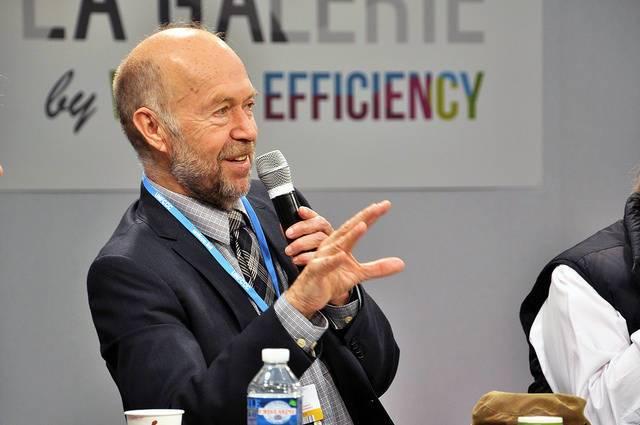
Almost 30 years ago, James Hansen made headlines when he told a congressional committee he was 99 percent certain that warming trends across the world were not a fluke, but were due to carbon dioxide and other gasses building up in the Earth’s atmosphere.
Back then, he was the director of NASA’s Institute for Space Studies in New York City. Over the years, Hansen became a leading climate activist, revered by many, yet reviled by others for his tactics. He’s now an adjunct professor with Columbia University’s Department of Earth and Environmental Sciences. And Hansen continues to speak out on climate change risks, especially sea-level rise, which he says could be even worse than originally projected.
But Hansen says there is a way to push climate action forward, which from his point of view is a no-brainer. He recently embraced a proposal by GOP elders to implement a revenue-neutral carbon tax that would pay dividends to every legal resident in the U.S.
In a recent interview with Scientific American, Hansen made it clear that U.S. President Donald Trump’s complete dismissal of climate science is hardly the way forward. But at the same time, he criticized the former Barack Obama administration’s Clean Power Plan for being too focused on regulation and, overall, simply ineffective.
GOP elders have suggested a starting price of $40 per ton of carbon. Hansen suggests $55 a ton, which would generate a dividend of approximately $1,000 per legal resident and a maximum of $3,000 for a family with two or more children. According to his logic:
“This [carbon tax] actually stimulates the economy. If it’s a tax taken by the government, it makes the government bigger and it depresses the economy. That’s why I object to the Democrats as much as to the Republicans. The only way the public will allow a carbon fee is if you give the money to them — people don’t want to see the price of gasoline at the pump going up.”
Hansen insisted during his talk with Annie Sneed of Scientific American that there really is no other solution to mitigate future climate change risks. If fossil fuels continue to be available as a cheap source of fuel, they will keep being burned. And the economic reality here in the U.S. is that consumers have always balked at paying higher fuel and utility prices.
Furthermore, Hansen made it clear that his vision of a more resilient world is not one limited to relying on solar and wind power. Nuclear power, he insisted, has to be part of this equation; in his view, it has done much to reduce carbon emissions as well as illnesses and premature deaths from pollution. And as emerging economic powerhouses such as China and India continue to grow, there is no way they could phase out coal consumption without including nuclear as part of their energy portfolios.
Based on the Trump administration’s executive orders during its first three months, it is doubtful the White House will consider a carbon tax. When GOP leaders such as George Shultz and James Baker presented their proposal to the White House, they did not meet with the president himself, but with his chief economic advisor Gary Cohn. That meeting so far has reportedly succeeded only in fomenting more tension in the White House.
As profiled by Politico, although Cohn was reportedly open to the idea, others within Trump’s inner circle viewed it as a non-starter. And furthermore, even if Trump suddenly supported some version of a carbon tax (which is not entirely out of the realm of possibility, considering his policy reversals over the past week), a vehemently anti-tax-in-any-form Congress would most likely kill the idea.
Nevertheless, Hansen is steadfast with his assessment that the risks of climate change must be made clear to the American public. But despite the politicization of climate change in D.C. and in state capitals across the U.S., he said scientists must continue to be clear about the science – and not fall into the trap of politicizing it -- if climate action will have any hope of advancing, or at least not losing too much ground, over the next four years.
Image credit: Chris Bently/Flickr

Leon Kaye has written for 3p since 2010 and become executive editor in 2018. His previous work includes writing for the Guardian as well as other online and print publications. In addition, he's worked in sales executive roles within technology and financial research companies, as well as for a public relations firm, for which he consulted with one of the globe’s leading sustainability initiatives. Currently living in Central California, he’s traveled to 70-plus countries and has lived and worked in South Korea, the United Arab Emirates and Uruguay.
Leon’s an alum of Fresno State, the University of Maryland, Baltimore County and the University of Southern California's Marshall Business School. He enjoys traveling abroad as well as exploring California’s Central Coast and the Sierra Nevadas.














